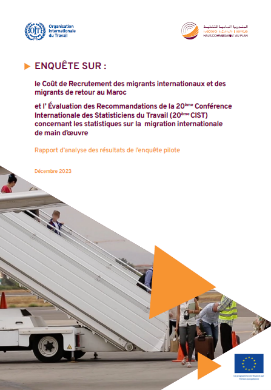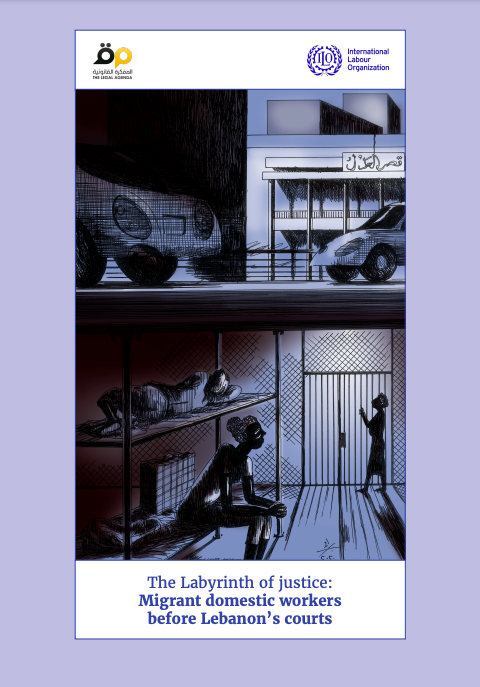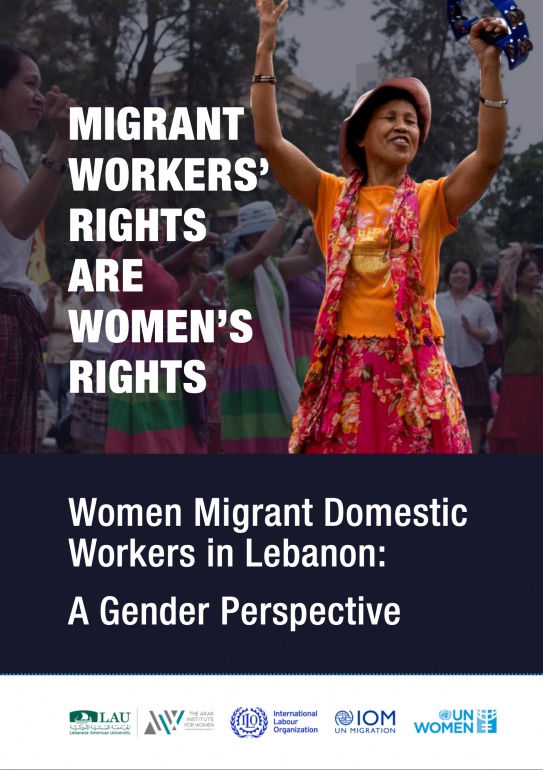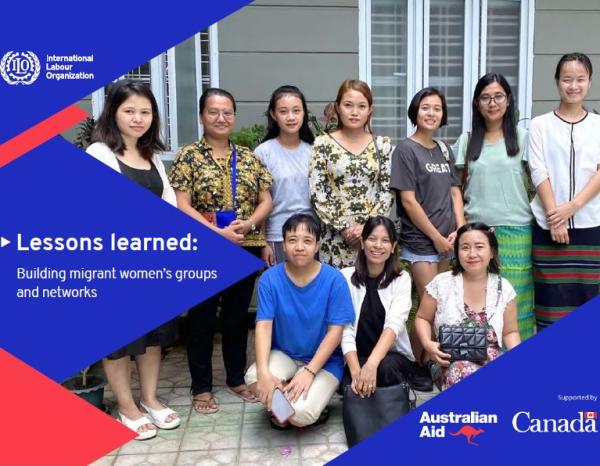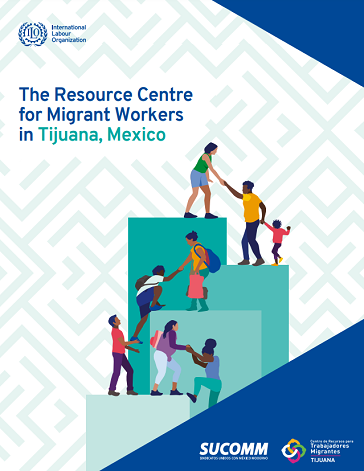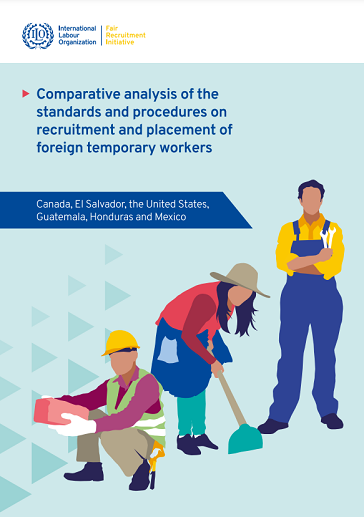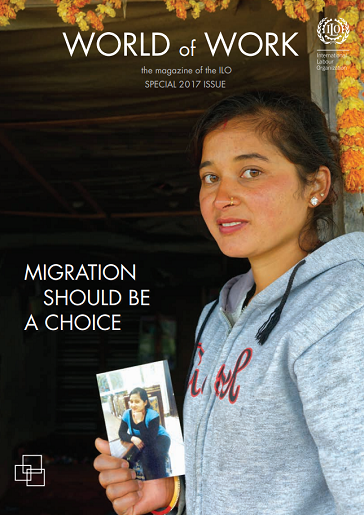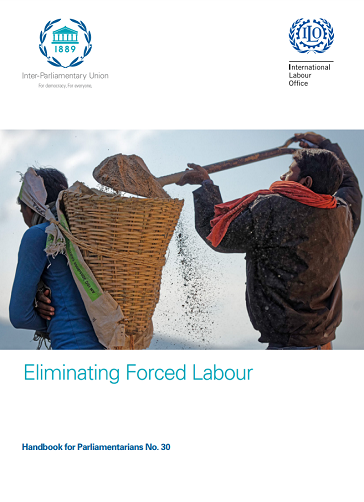Enquête sur le coût de recrutement des travailleurs migrants internationaux et de retour au Maroc
Cette enquête a pour objectif de valider la conception des modules d’enquête nécessaires à la production de statistiques conforment aux recommandations de la 20ème CIST concernant les statistiques sur la migration internationale de main d’oeuvre et aux directives de l’Organisation Internationale du Travail (OIT) et de la Banque Mondiale sur les coûts de recrutement.
-----------------------------------------------------------------------------------------------------------------------
Suite à la signature du protocole d’accord entre l’OIT et le Haut-Commissariat au Plan (HCP) du Maroc , des travaux ont été menés pour établir un système global de statistiques sur les migrations de main-d’oeuvre. Ce système doit assurer le suivi et l’élaboration de politiques fondées sur des données probantes, tel que souligné dans le Pacte mondial sur les migrations et l’Agenda des objectifs de béveloppement durable. Dans ce cadre, un ensemble d’activités d’assistance technique sont mises en œuvre par l’OIT pour accompagner le HCP dans la refonte de l’Enquête nationale sur l’emploi.
Des interventions stratégiques et de nouveaux outils sont en cours de développement pour produire des statistiques visant à documenter et améliorer la gouvernance des migrations de main-d’oeuvre.
L’objectif de ce rapport est d’évaluer la conception des modules pour produire des statistiques sur migration de main-d’œuvre, en tenant en compte principalement (1) des dernières recommandations de la Conférence internationale des statisticiens du travail (CIST) concernant les statistiques du travail et (2) du calcul de l’indicateur de l’Objectif de développement durable (ODD) 10.7.1, qui mesure les coûts de recrutement des travailleurs migrants internationaux et des travailleurs migrants de retour.
Ces données faciliteront l’élaboration de politiques efficaces, qui protègent les droits des travailleurs migrants et assurent une bonne gestion de la migration de main d’œuvre, tout en promouvant le développement durable dans les pays d’origine et de destination.
Type of document :
Country/Region :
Year of publication :
Theme : ,
Migrant domestic and garment workers in Jordan: A baseline analysis of trafficking in persons and related laws and policies
This study reviews the legal context of migration and work in Jordan’s garment and domestic work sectors. It describes gaps in law and practice in relation to international labour standards.
Type of document :
Country/Region :
Year of publication :
Theme : , ,
The Labyrinth of justice: Migrant domestic workers before Lebanon’s courts
This study is documentary research of jurisprudence regarding migrant domestic workers in Lebanon. It reviews and identifies the systemic flaws of Lebanon’s judiciary system in delivering justice to migrant domestic workers and explains why migrant women keep a distance from law enforcement processes.
Also available in Arabic. A video of the presentation is available.
Type of document :
Country/Region :
Year of publication :
Theme :
Preventing Discrimination, Exploitation and Abuse of Women Migrant Workers - An Information Guide
This information guide of 6 booklets aims to enhance knowledge and understanding of the vulnerability of migrant workers, especially women, to discrimination, exploitation and abuse throughout the international labour migration process and to promote and improve legislation, policies and action to prevent these problems and to better protect vulnerable workers.
Contains
- Booklet 1. Introduction: Why the focus on women international migrant workers
- Booklet 2. Decision-making and preparing for employment abroad
- Booklet 3. Recruitment and the journey for employment abroad
- Booklet 4. Working and living conditions
- Booklet 5. Back home: Return and reintegration
- Booklet 6. Trafficking of women and girls
Type of document :
Country/Region :
Year of publication :
Theme : ,
Women migrant domestic workers in Lebanon: A gender perspective
This paper illuminates the gender dimensions of women migrant domestic workers’ lived experiences in Lebanon under the kafala system. It examines the circumstances of women migrant domestic workers who live with their employer (live-in workers) and those who do not (live-out workers).
Type of document :
Country/Region :
Year of publication :
Theme : , ,
Lessons learned: Building migrant women’s groups and networks
The Lessons Learned outlined in this paper draw attention to reflections and good practices from the experiences of building of migrant women’s groups and networks in both countries of origin and destination.
The ILO’s TRIANGLE in ASEAN programme, supported by Global Affairs Canada and Australia’s Department of Foreign Affairs and Trade, recognizes that gender inequalities and discrimination limit the opportunities for women to benefit from migration, restrict women from reaching their full potential and increases the risk of exploitation. Aiming to increase women’s empowerment, TRIANGLE in ASEAN has supported six civil society organizations in Cambodia, Myanmar and Thailand to build migrant women’s groups and networks.
The ten lessons learned outlined in this paper cover practical issues including training of facilitators, the formation and maintenance of groups, and the building of wider networks nationally and cross-border. Other lessons learned address more complex issues that the migrant women’s groups have encountered. The lessons learned, like the groups themselves, are a work in progress. Building networks, tackling sensitive issues, advocating more broadly for the rights of migrant women and deepening the analysis of the complex social, economic and political factors through greater connectivity with social movements are all on the agenda for future interventions.
Women members of groups have gained more confidence, can more openly share and are expressing their opinions. Better informed, with more self-esteem, they are taking their own needs and knowledge into more consideration in decisions about migration. Migrant women’s group leaders are working together to advocate for policy changes and are prepared to tackle societal attitudes which discriminate against women and stigmatize migrant women.
The vibrant, enthusiastic migrant women’s groups built during this project are pleased to share their experiences with the hope that more migrant women will be able to build resilience through starting their own groups and be able to collectively address the inequalities, stigma and exploitation that migrant women currently face.
Type of document :
Country/Region : , , ,
Year of publication :
Theme : , ,
The Resource Centre for Migrant Workers (RCMW) in Tijuana, Mexico
Systematization of the experience of the RCMW. Recommendations to improve their services and to replicate the model in Mexico and Central American countries.
Type of document :
Country/Region :
Year of publication :
Theme : , , , ,
Comparative analysis of the standards and procedures on recruitment and placement of foreign temporary workers: Canada, El Salvador, the United States, Guatemala, Honduras and Mexico
This study compiles, analyses and synthesizes the different national and international regulations and procedures that countries apply to the recruitment and placement of temporary foreign temporary workers; and it also presents lessons learned and key practices. In the case of Canada, the document includes the provinces of Ontario, Manitoba, Alberta, British Columbia, Saskatchewan and Quebec.
Type of document :
Country/Region : , , , , , ,
Year of publication :
Theme : , , ,
World of Work magazine: Migration should be a choice
The 2017 edition of the World of Work magazine highlights themes discussed by the ILO’s 106th International Labour Conference (ILC), including labour migration and fair recruitment.
Type of document :
Country/Region :
Year of publication :
Theme : , , , ,
Eliminating forced labour: Handbook for parliamentarians No. 30
Effective legislation and regulations on recruitment processes, for both national and migrant workers, help to curtail forced labour and trafficking. Beyond adopting or amending legislation on recruitment, parliamentarians can request the adoption of implementing decrees and hold the government accountable for monitoring implementation. Promoting fair recruitment practices, and averting the occurrence or risk of forced labour through the recruitment process, must be a fundamental part of any forced labour prevention strategy.
This handbook, co-published with the Inter-Parliamentary Union (IPU), aims to help parliamentarians to make their contribution to global efforts to effectively combat the scourge of forced labour.
Type of document :
Country/Region :
Year of publication :
Theme : ,
Subscribe to the Fair Recruitment Initiative Newsletter
Sign up to receive news delivered to your inbox.

